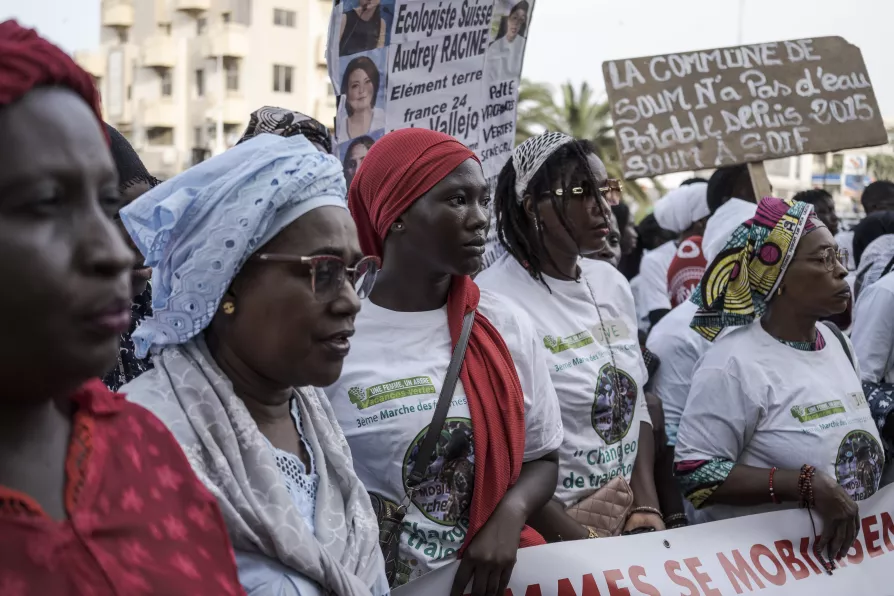Senegalese women demand climate justice


SENEGALESE women hit the streets of Dakar over the weekend in an annual march to demand climate justice ahead of Cop29.
Activists yelled “down with capitalism! Down with polluting countries!” during the protest on Saturday.
Some carried banners and signs demanding the protection of Senegal’s resources and calling for a decarbonised future.
Similar stories

From summit to summit, imperialist companies and governments cut, delay or water down their commitments, warn the Communist Parties of Britain, France, Portugal and Spain and the Workers Party of Belgium in a joint statement on Cop30

Reaching co-operation is supposed to be the beginning, not the end, of global climate governance, argues LISA VANHALA












